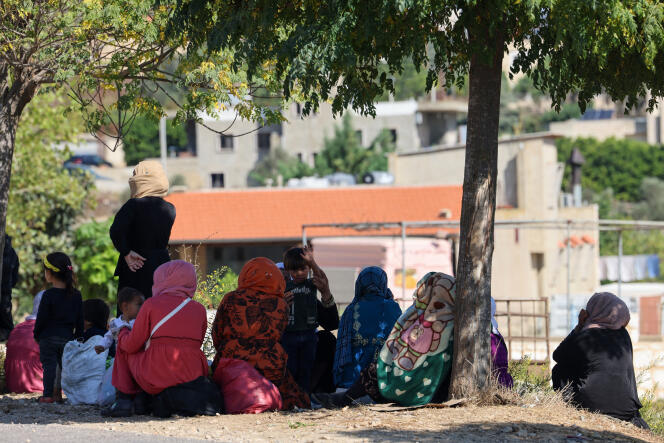LETTER FROM BEIRUT

Atef (he declined to give his last name), a Syrian from the Raqqa region, moved to Lebanon to work as a janitor a few years before the outbreak of war in his native country in 2011. Living in the Ghobeiry district of Beirut's southern suburbs, he tries hard to fit in. A surge of anxiety sweeps over him when violence erupts in Lebanon, but the very next day or two, he returns to his ordinary life, almost as if nothing has happened.
These ups and downs have worsened since the fighting began on the Lebanese-Israeli border in October, in connection with the war in Gaza. Every day, it pits the powerful Shiite movement Hezbollah, allied with Hamas and Iran, against the Israeli army, backed by the US.
Saleh al-Arouri, a Hamas executive exiled in Lebanon, was killed on January 2 in a strike attributed to Israel, not far from where the janitor lives. After this targeted assassination, Atef held his breath for a few days, fearing an escalation. More recently, on the night of Saturday, April 13 to Sunday, April 14, he didn't sleep, like many of his neighbors. Images of Tehran's retaliation against Israel, following the attack 12 days earlier on the Iranian consulate in Damascus, attributed to Israel, flooded the television screens. Atef feared that this offensive would, in turn, lead to retaliations, this time targeting the heart of the nearby Shiite southern suburbs: The Haret Hreik district, a vast residential area, and Hezbollah stronghold, was heavily destroyed by Israeli bombing during the 2006 war.
'We are once again shunned'
"I packed a suitcase, while my three children and my wife slept, so that we could flee if the war came here," he said. Although the conflict has burst into the lives of Syrians, whether refugees or workers, living in southern Lebanon, only a minority of them have chosen to leave, for lack of an alternative. They represent a small number of the 92,000 people displaced by the fighting at the border, as counted by the United Nations.
"Syrians are once again being shunned," said Atef, "and are coming under heavy pressure in the less exposed Christian regions." In 2006, the latter was one of the areas of refuge for people fleeing the south, which was shelled by the Israeli army during the 33-day war with Hezbollah.
A new wave of hostility towards Syrians is indeed on the rise. Since the onset of the severe economic crisis in 2019, which has led to unprecedented impoverishment, a rebound in emigration and chronic stress, the massive presence of refugees – up to 2 million according to Beirut, the first of whom were welcomed in 2011 – has led to recurring tensions within various communities in multi-faith Lebanon.
You have 47.2% of this article left to read. The rest is for subscribers only.